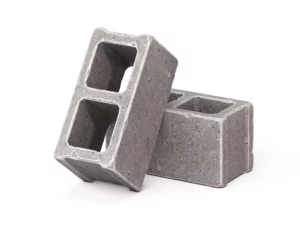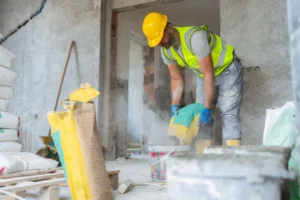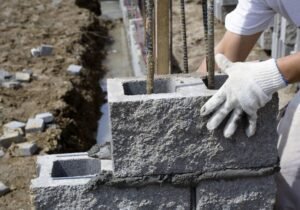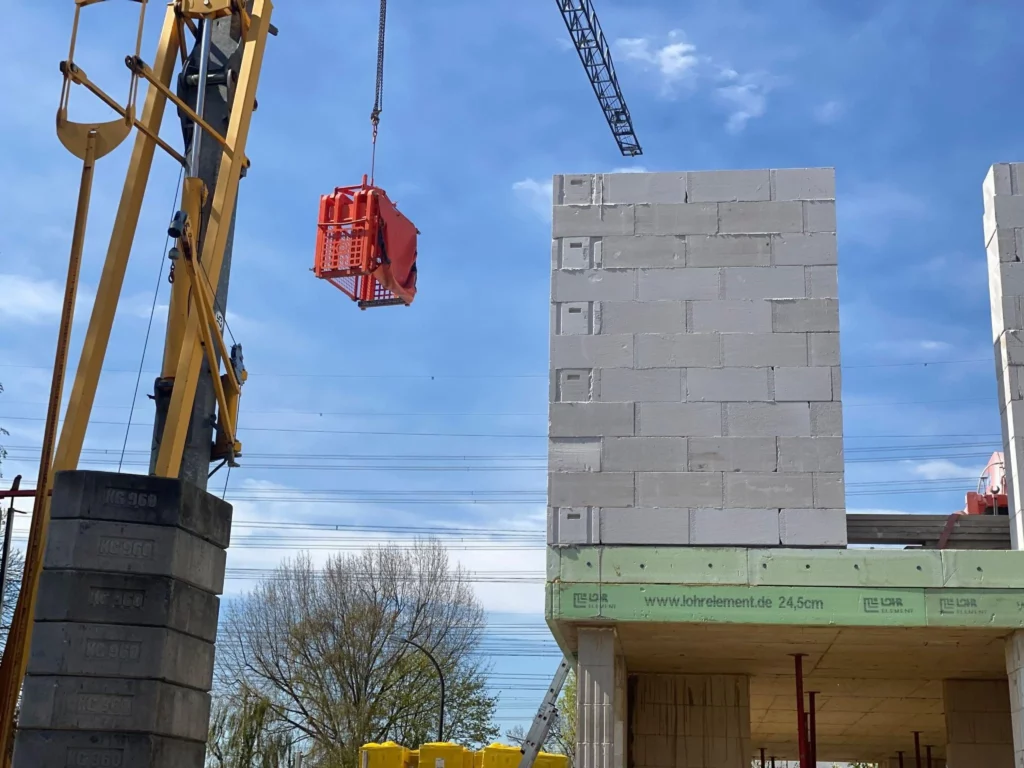In the world of construction, concrete blocks play a pivotal role in creating sturdy structures. These versatile building materials are used for walls, foundations, and various other construction projects. In this article, we’ll delve into the intricate process of how concrete blocks are made, shedding light on the steps involved, materials used, and the significance of Cronus Concrete in this process.
Understanding Concrete Blocks
Concrete blocks, also known as concrete masonry units (CMUs), are precast construction materials widely used in building projects. They come in various shapes, sizes, and compositions, making them adaptable to diverse construction needs. Their significance in the construction industry cannot be understated.
Ingredients of Concrete Blocks
The production of concrete blocks begins with carefully selected materials:
- Cement: Serving as the binding agent, cement holds the components together.
- Aggregates: These include sand, gravel, or crushed stone, contributing to the block’s strength.
- Water and Additives: Water activates the cement, while additives enhance properties like workability and durability.
Mixing the Components
The right proportions of cement, aggregates, water, and additives are essential. The mixing process ensures a uniform mixture that guarantees consistent block quality.
Molding the Blocks
Molding involves placing the mixed concrete into molds. The molds come in various types and sizes, influencing the block’s final appearance. The mixture is compacted within the mold to remove air voids.
Curing and Setting
Once molded, the blocks undergo a curing period to attain their full strength. Moisture and temperature control are critical during this phase, preventing cracks and ensuring durability.
Demolding and Surface Finishing
After the curing period, the blocks are demolded. Surface textures can be achieved through various techniques, such as brushing or washing. These textures enhance aesthetics and functionality.
Quality Control Measures
Inspection is vital to identify defects, cracks, or irregularities. Compression strength tests ensure the blocks meet required standards.
Cronus Concrete: Elevating the Process
Cronus Concrete stands as a leader in producing high-quality concrete blocks. They employ innovative technologies to optimize the manufacturing process while maintaining a strong commitment to sustainability.
Advantages of Concrete Blocks
Concrete blocks offer several advantages, including thermal insulation, fire resistance, and soundproofing. These properties contribute to the overall efficiency and safety of constructed buildings.
Applications in Construction
Concrete blocks find use in various construction projects, from residential buildings to commercial structures and landscaping endeavors. Their versatility makes them a preferred choice across the industry.
Environmental Considerations
Cronus Concrete is dedicated to sustainability. They utilize recycled aggregates and implement practices that reduce the carbon footprint associated with concrete production.
Future of Concrete Blocks
As technology advances, the potential applications of concrete blocks expand. Their adaptability makes them a canvas for creative architectural designs, shaping the future of construction.
Historical Insights
Concrete blocks have a fascinating historical background. The earliest known use of concrete dates back to ancient Egypt, where a mixture of mud and straw was used to create rudimentary bricks. The concept of using aggregates mixed with a binder has evolved over centuries to give birth to modern concrete blocks.
Advanced Manufacturing Techniques
Modern concrete block manufacturing involves precision and innovation. Cutting-edge machinery and computer-controlled processes ensure consistent quality and dimensional accuracy. Cronus Concrete has embraced these techniques, raising the bar for concrete block production.
Role of Technology
Technology has revolutionized the concrete block manufacturing process. Automated mixing systems ensure accurate proportions, while state-of-the-art curing chambers provide controlled conditions for optimal strength development. Cronus Concrete’s investment in technology underscores their commitment to excellence.
Sustainable Practices
Cronus Concrete recognizes the importance of sustainable practices in the construction industry. They actively incorporate recycled materials into their concrete blocks, reducing the demand for virgin resources. This eco-conscious approach aligns with the global movement towards greener construction methods.
Innovation in Design
Concrete blocks are no longer mere functional elements; they have become design assets. Textures, colors, and shapes are carefully considered to create visually appealing structures. Architects and builders now view concrete blocks as versatile components that contribute to the aesthetic value of a project.
Future Directions
The future of concrete blocks is brimming with possibilities. As urbanization intensifies, the demand for efficient and sustainable construction materials will rise. Concrete blocks, with their durability and adaptability, are poised to meet these demands while inspiring new architectural innovations.
Embracing Sustainability
Sustainability is not just a buzzword; it’s a responsibility. Cronus Concrete’s commitment to sustainability goes beyond production practices. They actively engage with communities, promoting eco-friendly construction and advocating for a more sustainable built environment.
Building a Better Tomorrow
In conclusion, the journey of a concrete block from raw materials to a finished building material is a testament to human ingenuity and progress. Cronus Concrete’s dedication to excellence and sustainability exemplifies the industry’s potential to create a better tomorrow through innovative construction solutions.
Conclusion
In the grand tapestry of construction materials, concrete blocks stand as a cornerstone. With Cronus Concrete’s dedication to innovation and sustainability, the process of creating these blocks reaches new heights. These seemingly simple elements play a pivotal role in building robust, resilient structures that shape our world. For moreinformative blogs or articles visit our website.
Frequently Asked Questions
- What is the history of concrete block usage?
- Concrete blocks have an ancient history, evolving from mud and straw mixtures in ancient civilizations to the modern building material we know today.
- How does technology impact concrete block manufacturing?
- Technology has revolutionized the process, enabling precision, consistency, and sustainable practices.
- What role does sustainability play in concrete block production?
- Sustainability is a crucial aspect, and Cronus Concrete’s use of recycled materials showcases their commitment to eco-friendly practices.
- How are concrete blocks being used in design?
- Concrete blocks are now considered design elements, with textures, colors, and shapes enhancing the visual appeal of structures.
- What does the future hold for concrete blocks in construction?
- Concrete blocks are poised to play a vital role in sustainable and efficient construction practices, meeting the demands of urbanization while inspiring architectural creativity.
